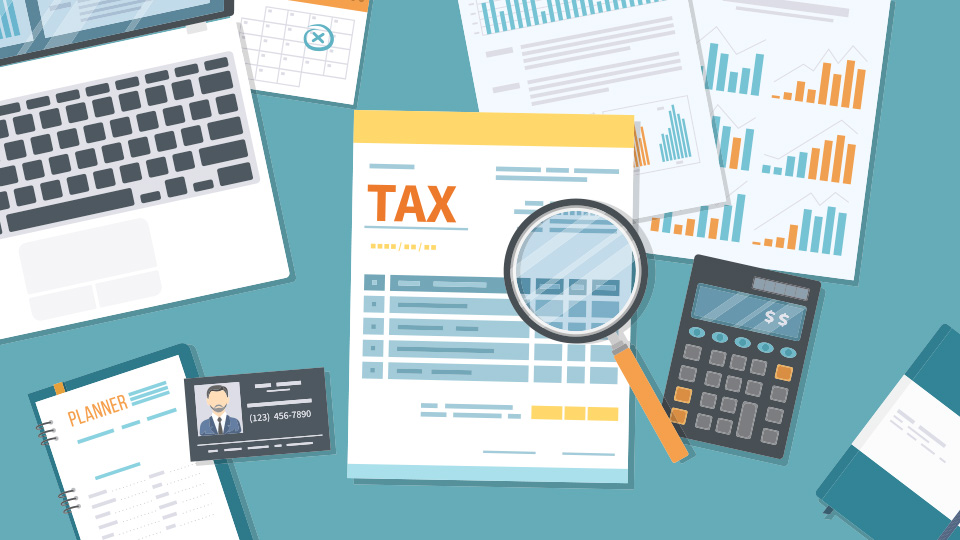February 25, 2020
Businesses face new superannuation changes to payroll reporting

The Australian Taxation Office (ATO) has introduced new superannuation rules for employers that will impact how businesses calculate super obligations for employees.
The changes will specifically affect employees who voluntarily choose to salary sacrifice their pre-tax income into superannuation.
From 1 January 2020, employers will need to calculate the 9.5 per cent Super Guarantee Charge (SGC) for their employees based on their gross wage, including voluntary super.
In previous years, it was possible for employers to reduce their SGC obligations by the amount of super that an employee salary sacrificed.
The ATO implemented these new rules to ensure employees received the superannuation contributions that they were entitled to.
How the Super Guarantee Charge (SGC) impacts employees
For example, an employee, who is paid a gross wage of $1,000 a week, may choose to voluntarily salary sacrifice $100 into super.
Before 1 January 2020, the employee’s pay run would look something like this:
| Gross wage: | $ 1,000.00 |
| Salary sacrificed super: | -$ 100.00 |
| PAYG withheld: | -$ 148.00 |
| Net pay: | $ 752.00 |
| SGC @ 9.5% of $900 | $ 85.50 |
In the above example, the employee receives a total of $185.50 into their super fund and takes home $752 in cash.
The employer has calculated the 9.5% SGC on the gross wage amount less the salary sacrificed super, equalling $900.
From 1 January 2020, an employee under the same package would now be paid as follows:
| Gross wage: | $ 1,000.00 |
| Salary sacrificed super: | -$ 100.00 |
| PAYG withheld: | -$ 148.00 |
| Net pay: | $ 752.00 |
| SGC @ 9.5% of $1,000 | $ 95.00 |
There is little change to the employee’s remuneration components, only that they receive a higher amount of SGC.
This will mean that as an employer you will potentially be up for higher superannuation expenses.
Here, we will review both scenarios for an employee that is on an annual salary of $52,000, plus 9.5 per cent super (total package of $56,940).
Pre 1 Jan 2020
| Gross wage: | $ 52,000.00 |
| Salary sacrificed super: | -$ 5,200.00 |
| PAYG withheld: | -$ 7,696.00 |
| Net pay: | $ 39,104.00 |
| SGC @ 9.5% of $46,800 | $ 4,446.00 |
| Amount in super | $ 9,646.00 |
| Total Package | $ 56,446.00 |
Post 1 Jan 2020
| Gross wage: | $ 52,000.00 |
| Salary sacrificed super: | -$ 5,200.00 |
| PAYG withheld: | -$ 7,696.00 |
| Net pay: | $ 39,104.00 |
| SGC @ 9.5% of $52,000 | $ 4,940.00 |
| Amount in super | $ 10,140.00 |
| Total Package | $ 56,940.00 |
Under the previous legal requirements, employers had the potential to effectively save money, as the employee choosing to salary sacrifice lowered the level of the employer’s SGC obligations.
However, this is no longer possible under the new rules.
How the Super Guarantee Charge (SGC) changes impact directors and business owners
The situation can become slightly more complex for directors and owners that pay themselves a wage who have structured their contributions in such a way to reach their maximum contribution cap for that year.
Under these scenarios, there will need to be an adjustment made between the superannuation components.
Because of this, it is also likely that the PAYG and the net cash received will also change. An example has been provided below:
Pre 1 Jan 2020
| Gross wage: | $ 62,191.80 |
| Salary sacrificed super: | -$ 21,095.88 |
| PAYG withheld: | -$ 5,724.00 |
| Net pay: | $ 35,371.92 |
| SGC @ 9.5% of $41,095.92 | $ 3,904.11 |
| Amount in super | $ 24,999.99 |
| Total Package | $ 66,095.91 |
Post 1 Jan 2020
| Gross wage: | $ 62,191.80 |
| Salary sacrificed super: | -$ 19,091.78 |
| PAYG withheld: | -$ 6,396.00 |
| Net pay: | $ 36,704.02 |
| SGC @ 9.5% of $62,191.80 | $ 5,908.22 |
| Amount in super | $ 25,000.00 |
| Total Package | $ 68,100.02 |
Under the new scenario, you are better off as an individual, as you still get $25,000 into superannuation but you get to retain more cash for yourself.
Get advice from the superannuation experts
As an employer, these new rules may impact your outflows and will need to be factored in with any budgeting.
As an employee, it’s important to ensure that your employer is following these rules appropriately and that you are being paid the correct amount.
If you need help navigating these new SGC rules, LDB Group’s team of trusted specialists can help.
To find out more, give us a call on (03) 9875 2900 or fill in the contact form below.





